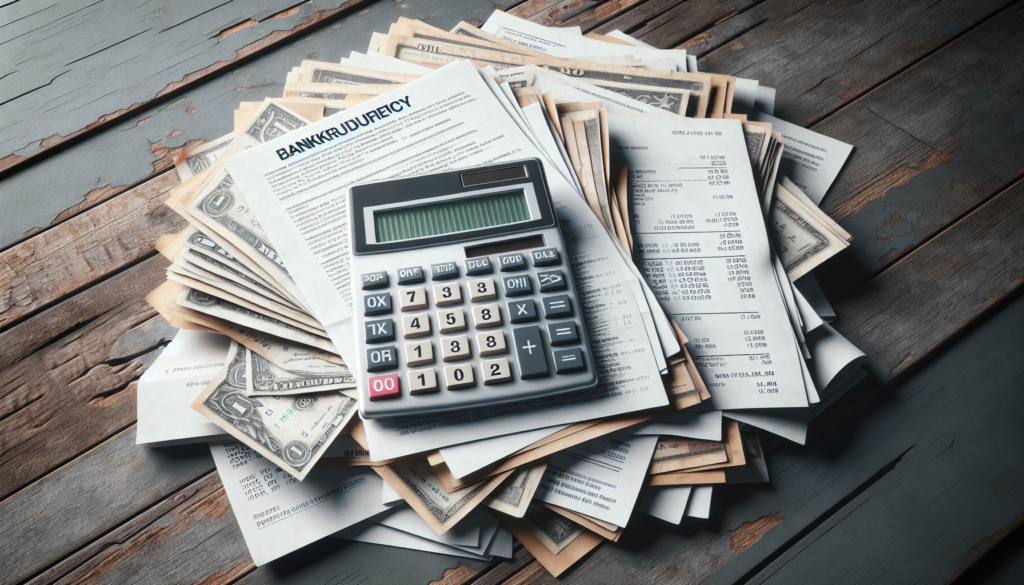
Wage garnishment — where creditors take a portion of your paycheck to satisfy unpaid debts — can significantly impact your financial stability and peace of mind. However, for many grappling with this stressful situation, filing for Chapter 7 bankruptcy offers a viable solution to halt wage garnishments and pave the way toward financial recovery. This article delves into how the automatic stay in Chapter 7 bankruptcy works, its exceptions, and the long-term relief it can provide, offering essential insights for those seeking to navigate these challenging waters.
The Power of the Automatic Stay
The moment you file for Chapter 7 bankruptcy, an automatic stay goes into effect. This legal injunction is a powerful feature of the bankruptcy process, providing immediate relief by stopping most creditors from continuing with collection actions against you, including wage garnishment. The automatic stay serves as a legal barrier, ensuring that your income remains intact while your bankruptcy case is processed.
Immediate Relief from Wage Garnishment: The automatic stay’s immediate effect on wage garnishments is one of its most significant benefits. Creditors must cease garnishment activities as soon as they are notified of the bankruptcy filing. To expedite this process, it’s advisable to inform your employer and the garnishing creditor of your bankruptcy filing directly, providing them with the case number and filing date.
Understanding Exceptions to the Automatic Stay
While the automatic stay halts most wage garnishments, it’s crucial to recognize its exceptions. Not all debts are treated equally in bankruptcy, and certain obligations can still lead to garnishment even after filing:
- Child Support and Alimony: These priority debts are not affected by the automatic stay. Obligations such as child support and alimony are considered essential and continue despite bankruptcy proceedings.
- Tax Debts: Garnishments for some tax debts may not be stopped by the automatic stay, depending on the nature of the debt and federal or state tax laws.
- Student Loans: Federal student loan garnishments may also proceed, although the automatic stay may provide temporary relief while your bankruptcy case is active.
Achieving Long-Term Relief Through Debt Discharge
Chapter 7 bankruptcy doesn’t just offer a temporary reprieve from wage garnishment; it can also provide long-term relief by discharging eligible debts:
- Dischargeable Debts: Many unsecured debts, such as credit card balances, medical bills, and personal loans, can be discharged in Chapter 7 bankruptcy. This means that once these debts are eliminated, creditors cannot resume garnishment for those debts.
- Non-Dischargeable Debts: For debts that cannot be discharged, such as certain taxes, child support, and alimony, the automatic stay offers only temporary relief. You will need to make arrangements to continue payments for these obligations after your bankruptcy case concludes.
Proactive Steps to Stop Wage Garnishment Through Chapter 7 Bankruptcy
If you’re considering Chapter 7 bankruptcy as a solution to stop wage garnishment, taking proactive steps can enhance your chances of success:
- Seek Legal Counsel: Consulting with a bankruptcy attorney can provide you with a clear understanding of your options, the bankruptcy process, and the potential outcomes for your case.
- Prepare Your Financial Documentation: Accurate and comprehensive financial documentation is crucial for your bankruptcy filing. This includes details of your debts, income, assets, and expenses.
- Understand the Timing: The timing of your bankruptcy filing can significantly impact its effectiveness in stopping wage garnishment. Ideally, filing before a garnishment begins is best, but if garnishment has already started, bankruptcy can stop it from continuing.
Filing for Chapter 7 bankruptcy offers a legal pathway to stop wage garnishment, allowing individuals to protect their income and work toward financial stability. By understanding the automatic stay, recognizing its exceptions, and seeking professional guidance, those affected by wage garnishment can navigate the bankruptcy process more effectively. Remember, while bankruptcy can provide much-needed relief and a fresh start, it’s a significant financial decision that should be made with careful consideration and professional advice.

Get a Free Bankruptcy Case Evaluation